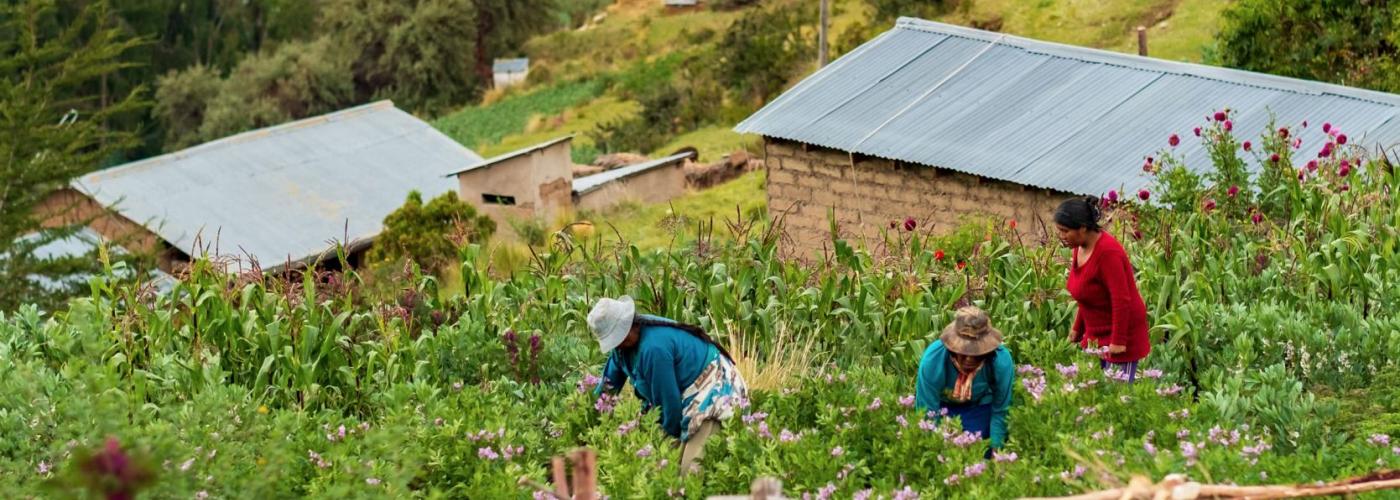Experiences in Gender-Sensitive Solutions to Collateral Constraints
Image

This post is based on a new learning paper, “Experiences in Gender-Sensitive Solutions to Collateral Constraints,” published as part of the MEDA INNOVATE learning series.
The topic of collateral is a common theme that arises in agricultural lending. There is shared acknowledgment that collateral requirements by most financial institutions and regulatory systems in low-income countries inhibit access to credit for smallholder farmers and micro, small and medium-sized enterprises (MSMEs) in the agriculture sector, particularly for those led by women. Conventional lenders, who view smallholder farmers as high risk, require collateral in the form of land or building titles and often request proof of financial stability through bank statements. Women, who face unequal access to land and property, and are unbanked at higher rates than men, are unlikely to be able to meet collateral requirements for affordable loan products.
A key learning objective of the MEDA INNOVATE initiative is to better understand the policy and ecosystems changes necessary to facilitate increased access to and use of finance for smallholder farmers to adopt agricultural innovations. In INNOVATE’s latest learning paper, "Experiences in Gender-Sensitive Solutions to Collateral Constraints," author Allison Nafziger (MEDA) explores how the use of non-conventional collateral (NCC) in agricultural lending can contribute to improved access to and use of appropriate and affordable credit by smallholder women farmers.
Access to affordable credit could help break the cycle of low-quality inputs, low productivity, and low income affecting many smallholder women farmers. Research has shown that NCC can make credit more accessible to smallholder farmers. NCC includes lending against livestock, crops or inventories, warehouse receipts, contracts, equipment, and other moveable assets. It also includes financial leasing, whereby the lessee can generate cash from the use of the leased asset to service the lease payment, as well as social collateral, such as women’s peer group lending. However, limited research has been done with a gender lens.
NCC can serve as an effective security for loans and facilitate greater access to finance for women and smallholder farmers. This is because NCC, together with an effective registry system and appropriate regulatory frameworks, can reduce risk for lenders while addressing the triple exclusionary bias against agriculture, smallholders with uncertain markets, and women who often lack traditional forms of collateral. These lessons have implications for lenders as well as regulators and consumers. Governments and financial institutions should continue to work to develop appropriate products, legislation, and registry systems for the effective use of NCC.
MEDA INNOVATE's new paper provides financial service providers and policymakers with guidance on the potential for NCC to increase access to credit for women smallholder farmers, promote greater financial inclusion, and the importance of registries and sound legal frameworks to achieving this goal. Women’s organizations promoting financial inclusion, such as Women’s World Banking, can also benefit from this additional evidence to support their continued promotion of NCC and collateral registries.
Recommendations for Policymakers:
-
To facilitate increased access to credit for women smallholder farmers, collateral law ought to accommodate multiple types of small assets including livestock, crops, inventory, equipment, or accounts receivable.
-
A collateral registry should be standardized and centralized to enable transparency among lenders, to easily record assets and claim them in case of default.
-
In light of the mandate of many national development plans and international commitments (such as the Sustainable Development Goals), policymakers should consider their role in facilitating financial inclusion by allowing the use of NCC and facilitating the development of a registry.
-
Promotion of the use of NCC security in lending is needed in many countries in order to bolster the level of understanding and build the confidence of financial institutions.
Recommendations for Financial Institutions:
- In countries where collateral law allows, financial institutions should pilot the use of NCC to broaden their portfolios. Once a successful product is developed, they could experiment with a registry system using one of the various existing models to demonstrate the value and benefits within the institution and beyond.
- While anecdotal evidence exists, there is a lack of data on how gender may affect the use of NCC and NCC registries. It is recommended for financial institutions who accept NCC security for their lending to collect sex-disaggregated data to provide as evidence for policymakers.
About INNOVATE:
INNOVATE – Adoption of Agricultural Innovations through Non-Traditional Financial Services, is a 3-year initiative implemented by MEDA and funded by the International Development Research Centre (IDRC) assessing the potential of non-traditional finance to enable large scale adoption of agricultural innovations among smallholder farmers in South Asia, South America, and East Africa.

